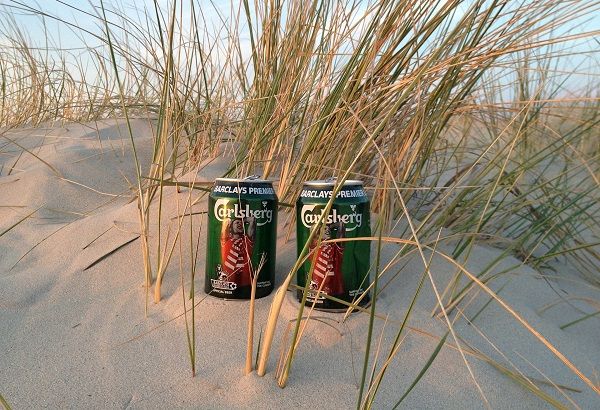Back in 2015 a political agreement was reached that drinks cans sold in shops just across the Danish border in Germany should have a one kroner deposit on them like the one applicable to cans bought in Denmark.
However, there has been no movement on this issue and Socialdemokratiet has now had enough.
“There is an existing agreement that could be implemented, so I think it is disgraceful the government has just been sitting on its hands for the last four years and done absolutely nothing about the problem,” Socialdemokratiet’s environmental spokesperson, Christian Rabjerg Madsen, told TV2 Nyheder.
A whole lot of litter
The Danish environmental authority Miljøstyrelsen estimates that 650 million deposit-free cans are brought into Denmark every year.
Around 100 million of them end up being chucked out in the countryside and 300 million in dustbins instead of being recycled. It takes around 500 years for a can to be broken down naturally.
READ ALSO: Danes want stiffer fines for littering
The minister for the environment and food, Jakob Ellemann-Jensen, puts the blame on the EU.
“The agreement on putting a deposit on cans from border shops is on standby at the moment because of a complaint made by the Danish trade body Dansk Erhverv to the European Commission,” said Ellemann-Jensen.
Distorting competition
Dansk Erhverv has complained to the commission on the grounds of competition being distorted; if German shops just across the border don’t have to charge a deposit, it is unfair competition with Danish shops and other shops away from the border regions in Germany that do have to.
“We know the deposit system works, so the problem would be solved if we expand it. So it is clearly a good idea to put maximum pressure on Germany to implement the agreement from a couple of years ago,” said Maria Reumert Gjerding, the head of the nature conservation body Danmarks Naturfredningsforening.















